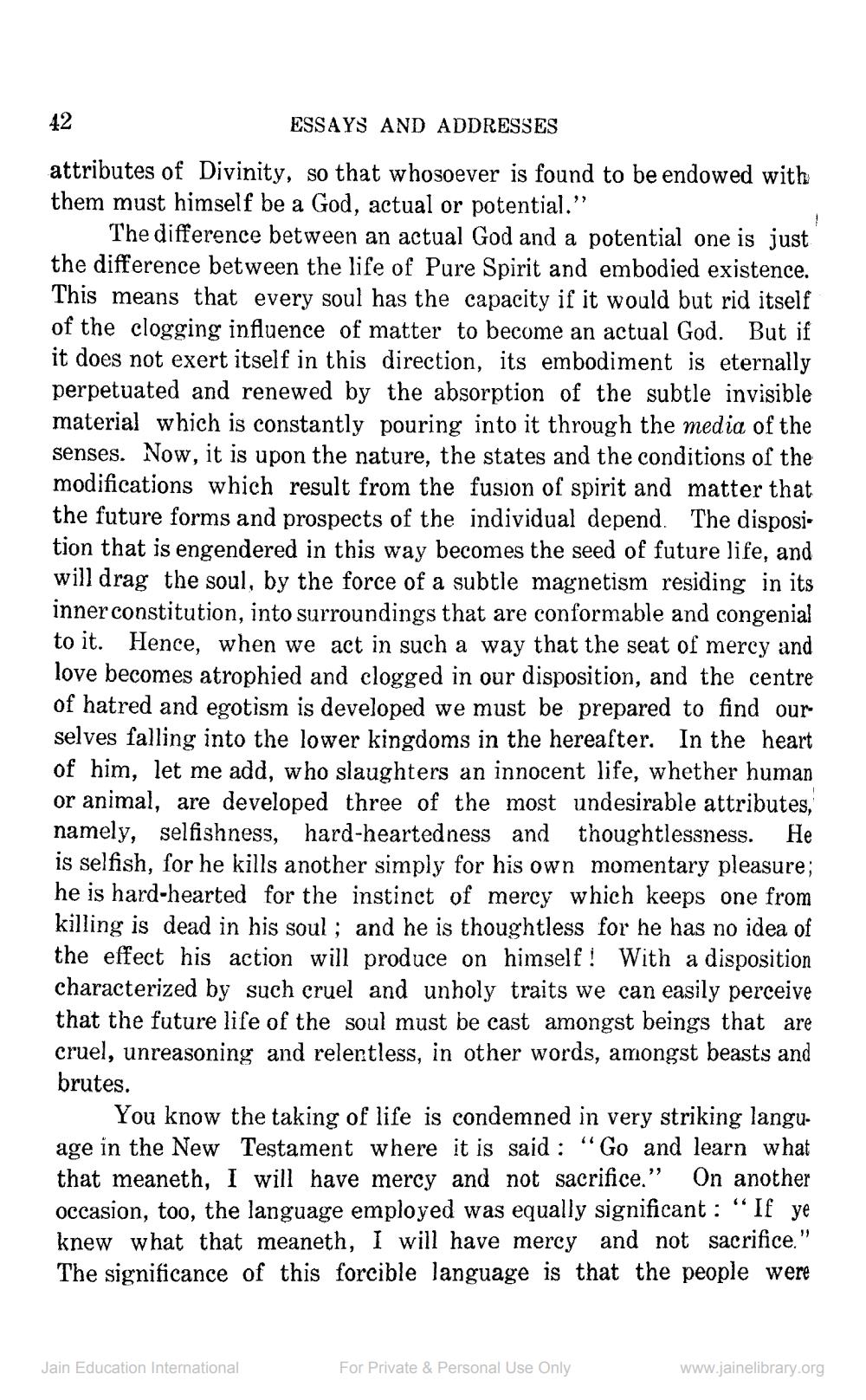________________
42
ESSAYS AND ADDRESSES
attributes of Divinity, so that whosoever is found to be endowed with them must himself be a God, actual or potential."
!
The difference between an actual God and a potential one is just the difference between the life of Pure Spirit and embodied existence. This means that every soul has the capacity if it would but rid itself of the clogging influence of matter to become an actual God. But if it does not exert itself in this direction, its embodiment is eternally perpetuated and renewed by the absorption of the subtle invisible material which is constantly pouring into it through the media of the senses. Now, it is upon the nature, the states and the conditions of the modifications which result from the fusion of spirit and matter that the future forms and prospects of the individual depend. The disposi tion that is engendered in this way becomes the seed of future life, and will drag the soul, by the force of a subtle magnetism residing in its inner constitution, into surroundings that are conformable and congenial to it. Hence, when we act in such a way that the seat of mercy and love becomes atrophied and clogged in our disposition, and the centre of hatred and egotism is developed we must be prepared to find our selves falling into the lower kingdoms in the hereafter. In the heart of him, let me add, who slaughters an innocent life, whether human or animal, are developed three of the most undesirable attributes, namely, selfishness, hard-heartedness and thoughtlessness. He is selfish, for he kills another simply for his own momentary pleasure; he is hard-hearted for the instinct of mercy which keeps one from killing is dead in his soul; and he is thoughtless for he has no idea of the effect his action will produce on himself! With a disposition characterized by such cruel and unholy traits we can easily perceive that the future life of the soul must be cast amongst beings that are cruel, unreasoning and relentless, in other words, amongst beasts and brutes.
You know the taking of life is condemned in very striking langu age in the New Testament where it is said: "Go and learn what that meaneth, I will have mercy and not sacrifice." On another occasion, too, the language employed was equally significant: "If ye knew what that meaneth, I will have mercy and not sacrifice." The significance of this forcible language is that the people were
Jain Education International
For Private & Personal Use Only
www.jainelibrary.org




